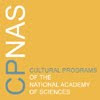From: Eugene Thacker
Date: Fri, 9 Mar 2007 19:52:28 -0500 (EST)
Suzanne's comments concerning the "naturalization" of images - and others havealso mentioned this - is worth talking more about. Now, as I understand it,"naturalization" here means "getting-used-to" or "becoming-accustomed-to"something that may at first seem alien or strange. So, for instance, a medical student in a gross anatomy lab must become accustomed to not only the dissected cadaver, but the correlated images of CT/MRI scans and - nowadays - 3D models of anatomy on a computer. Similarly, I as a non-doctor may see so many popular representations of CT/MRI images in TV shows like 'Medical Investigation' or 'House' that they may simply come to stand-in for "high-tech tool" to me as a casual viewer. But how is this kind of naturalization of images related to ideas of "nature" itself? The interesting thing about the discussion thus far is that we're
asking about the "naturalization of nature" via these images (e.g. of the fetusor embryo - and here I also think about the posthuman space-fetus in the lastscene of '2001: A Space Odyssey,' as well as the references to oceanic wombspace in Tarkovsky's 'Solaris' - and coffee-table books like Nilsson's'Behold Man'). Does nature need to be naturalized? And if so, does this make it "ideological"? So this naturalization of nature entails a mode of training the viewer(specialist or not) to view in a certain way - or at least to become accustomed to the image so as to *not* question the act of viewing itself. Then the question is: what idea of "nature" and/or "life" must be assumed in order for someone to even be capable of being accustomed to such images? I'm interested in hearing from the visual artists here - what do you as an artist assume that the viewer will bring to the image in terms of preconceived ideas?I also wonder if, in addition to naturalization we should be talking more directly about "aestheticization" or what it means to render biological life as aesthetic (as opposed to understanding biological life as sensory and phenomenal). Or if, in a sense, nature is precisely that which is aesthetic...
-Eugene
to post a response, click on the "comment" button below
to return to the main page, go to www.visualcultureandbioscience.org
Subscribe to:
Post Comments (Atom)

No comments:
Post a Comment